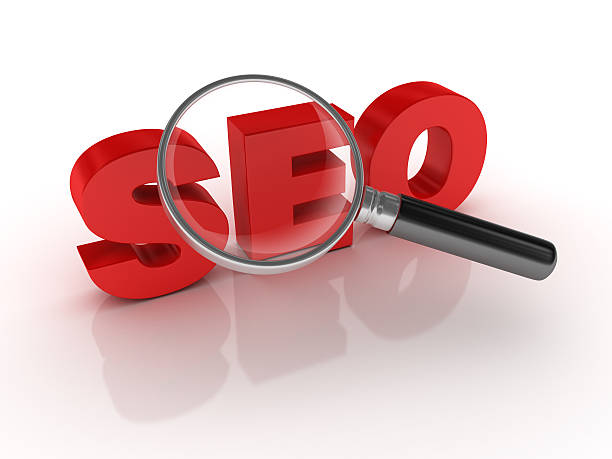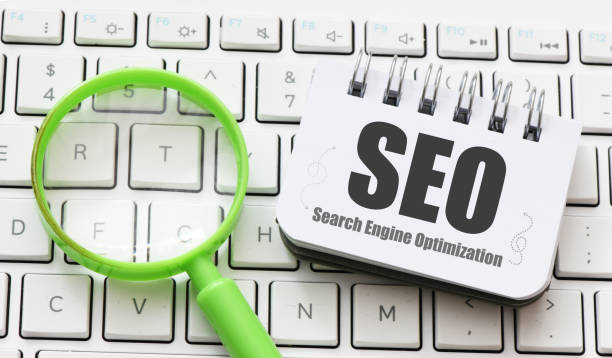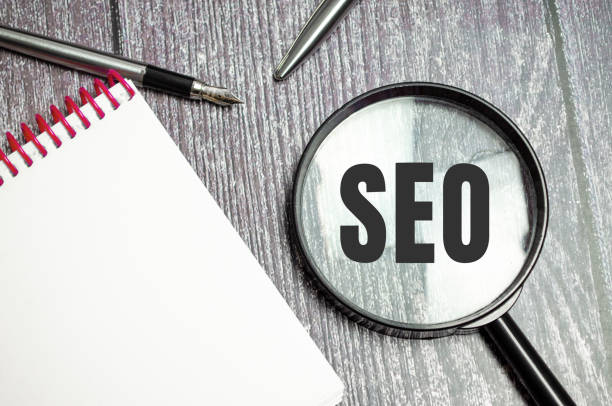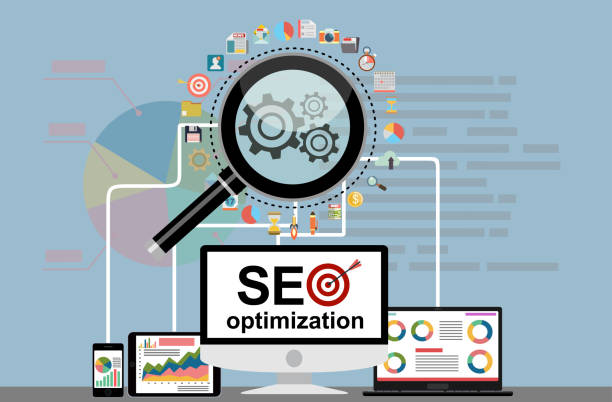What is SEO and Why is it Important?

What is SEO and Why is it Important?
SEO (Search Engine Optimization) refers to a set of activities carried out to improve the ranking of a website in the search engine results of search engines like Google.
The main goal of #SEO is to increase the organic (non-paid) traffic to a website.
The importance of SEO in today’s world is very high, as most internet users use search engines to find information, products, or services they need.
If a website is in the top ranks of search results, the chance of it being seen and attracting an audience is much higher.
In other words, SEO helps you optimize your website for search engines so they can easily find and index your content.
This makes your website rank higher in search results for keywords related to your business, and as a result, more traffic flows to your website.
This traffic is often higher quality, as users who come to your website through search are looking for information or products that you offer.
Improving SEO can significantly increase customer conversion rates.
Therefore, investing in SEO can be a very effective marketing strategy for businesses.
SEO allows you to reach your target audience, strengthen your brand, and ultimately increase your sales.
Don’t have a company website yet and are missing out on online opportunities? With professional company website design by Rasaweb,
✅ Double your business credibility
✅ Attract new customers
⚡ Free consultation for your company website!
SEO Basics: Understanding Ranking Factors

SEO Basics: Understanding Ranking Factors
Search engines use complex algorithms that include hundreds of different factors to rank websites in search results.
Understanding these factors and how they affect your website’s ranking is essential for implementing a successful SEO strategy.
In general, ranking factors can be divided into two main categories SEO :
- On-Page SEO Factors: These factors relate to the content of your website and how it is organized.
Some of the most important on-page SEO factors include:- Keywords: Using keywords related to your business in titles, meta descriptions, main content, and page URLs.
- Content: Producing high-quality, valuable, and engaging content that answers the questions and needs of your audience.
- Website Structure: Having a logical and easy-to-navigate structure that helps users and search engines easily find the pages they are looking for.
- Loading Speed: Optimizing the loading speed of website pages, as slow speed can affect user experience and reduce SEO ranking.
- Mobile Optimization: Ensuring that your website displays well on mobile devices, as a significant portion of website traffic today comes from mobile devices.
- Off-Page SEO Factors: These factors relate to the credibility and reputation of your website in the online world.
Some of the most important off-page SEO factors include:- Backlinks: Receiving links from other websites to your website, especially reputable websites related to your business.
Backlinks act as a vote of confidence for your website and can significantly increase your SEO ranking. - Social Media: Activity on social media and sharing your website content on these platforms.
- Branding: Creating a strong and recognizable brand that has a special place in the minds of your audience.
- Backlinks: Receiving links from other websites to your website, especially reputable websites related to your business.
Based on these factors, you can design and implement a comprehensive SEO strategy for your website to improve its ranking in search results.
Keyword Research: Finding the Best Phrases to Target

Keyword Research: Finding the Best Phrases to Target
Keyword research is one of the most important steps in SEO.
The purpose of this research is to find the words and phrases that your audience uses in search engines to search for products, services, or information related to your business.
Choosing the right keywords can have a significant impact on attracting targeted traffic to your website.
The Ahrefs Keywords Explorer tool is one of the best tools for this.
Steps to Conduct Keyword Research:
- Identify Main Keywords: Initially, you need to identify the main keywords related to your business.
These words should accurately describe the products, services, or information you provide. - Use Keyword Research Tools: To find related and popular keywords, you can use various tools such as Google Keyword Planner, Ahrefs, SEMrush, and Moz Keyword Explorer.
These tools provide you with information such as search volume, competition, and related keywords. - Analyze Competitors: Check what keywords your competitors are using.
This can help you discover new keywords and improve your SEO strategy. - Choose Long-Tail Keywords: Long-tail keywords are phrases that include several words and usually have lower search volume, but their conversion rate is higher.
For example, instead of using the keyword “shoes”, you can use the phrase “buy men’s athletic shoes”. - Create a List of Keywords: After conducting research, create a list of related, popular, and low-competition keywords.
This list should include main keywords and long-tail keywords.
| Keyword | Search Volume | Competition |
|---|---|---|
| #SEO | 10000 | High |
| #SEO Training | 5000 | Medium |
| #SEO Services | 2000 | High |
| What is #SEO | 1000 | Low |
Using this list, you can optimize your website content and attract more targeted traffic.
In general, SEO optimization requires careful and continuous research and review.
On-Page SEO: Optimizing Web Pages for Search Engines

On-Page SEO: Optimizing Web Pages for Search Engines
On-Page SEO includes a set of actions that you take within your website to improve its ranking in search engine results.
These actions include optimizing content, website structure, title tags and meta descriptions, and more.
By properly implementing on-page SEO techniques, you can help search engines better understand your website content and display it to the right users.
The Most Important On-Page SEO Factors:
- Title Tag: The title tag is the most important on-page SEO factor.
The title tag should include the main keyword and accurately describe the content of the page. - Meta Description: The meta description is a short summary of the page’s content that is displayed in search results below the title tag.
The meta description should be attractive and persuasive to encourage users to click on your website link. - Heading Tags: Using heading tags (H1, H2, H3, …) helps search engines understand the structure of the page’s content.
The main keyword should be used in the H1 tag and sub-heading tags as well. - Content: High-quality, valuable, and engaging content is very important for users and search engines.
The content should be unique, relevant to the keywords, and fully answer the questions and needs of the audience. - URL: The page URL should be short, descriptive, and include the main keyword.
- Images: Images should be optimized to reduce their size and increase page loading speed.
Also, the alt tag of images should include related keywords. - Internal Links: Using internal links to other pages of your website helps search engines understand the structure of your website and identify important pages.
By following these tips, you can optimize your website pages for search engines and improve their ranking in search results.
On-page SEO plays a very important role in increasing your website’s organic traffic.
Does your company’s site make a professional and lasting first impression on potential customers? Rasaweb, with its professional company website design, not only represents the credibility of your brand but also opens a path for your business growth.
✅ Create a powerful and reliable brand image
✅ Attract target customers and increase sales
⚡ Get a free consultation
Off-Page SEO: Building Authority and Link Building

Off-Page SEO: Building Authority and Link Building
Off-Page SEO refers to a set of actions that you take outside of your website to increase the credibility and reputation of your website in the online world.
The most important aspect of off-page SEO is link building.
Link building is the process of receiving links from other websites to your website.
In SEO, links act as a vote of confidence for your website and can significantly increase your SEO ranking.
There are different methods for link building:
- Natural Link Building: This method involves producing high-quality and valuable content that is naturally linked to by other websites.
- Manual Link Building: This method involves contacting other websites and requesting links from them.
- Automated Link Building: This method involves using software and tools that automatically create links.
This method is not recommended as it can lead to your website being penalized by search engines.
Tips for Effective Link Building:
- Links from Related Websites: Receiving links from websites related to your business is more valuable.
- Links from Reputable Websites: Receiving links from reputable and high-ranking websites is more valuable.
- Variety in Links: Try to receive links from different sources.
- Use Anchor Text: Anchor text is the text that is linked to.
Using related keywords in anchor text can help improve your SEO ranking.
In addition to link building, activity on social networks, branding, and public relations can also help improve your off-page SEO.
Off-page SEO is a time-consuming and continuous process, but it can have a significant impact on increasing your website’s organic traffic.
Technical SEO: Optimizing Website Structure and Speed

Technical SEO: Optimizing Website Structure and Speed
Technical SEO deals with optimizing the technical aspects of your website so that search engines can easily find, index, and understand it.
This type of SEO includes optimizing website structure, loading speed, mobile compatibility, etc.
Technical SEO does not directly affect your website’s ranking in search results, but it provides a strong foundation for your other SEO activities.
The Most Important Aspects of Technical SEO:
- Website Structure: Your website should have a logical and easy-to-navigate structure.
This helps users and search engines easily find the pages they are looking for. - Loading Speed: The loading speed of your website pages should be high.
Slow speed can affect user experience and reduce SEO ranking. - Mobile Compatibility: Your website should display well on mobile devices.
Today, a significant portion of website traffic comes from mobile devices. - Sitemap: A sitemap is an XML file that contains a list of all the pages on your website.
The sitemap helps search engines find and index all the pages on your website. - Robots.txt File: The robots.txt file tells search engines which pages of your website should not be indexed.
- SSL Certificate: The SSL certificate guarantees the security of your website and assures users that their information is safe.
| Factor | Description | Importance |
|---|---|---|
| Loading Speed | Optimizing images, codes, and hosting | High |
| Mobile Compatibility | Responsive Design | High |
| Sitemap | Providing a complete map to search engines | Medium |
| SSL Certificate | Website Security | Medium |
By following these tips, you can technically optimize your website and help search engines easily find and index it.
Technical SEO is an important aspect of your SEO strategy.
SEO Analysis: Tracking Results and Improving Performance

SEO Analysis: Tracking Results and Improving Performance
SEO analysis refers to the process of tracking and evaluating your website’s performance in search engines.
The purpose of this analysis is to identify the strengths and weaknesses of your SEO strategy and make necessary changes to improve performance.
With continuous analysis, you can ensure that your investment in SEO leads to desired results.
The Google Search Console tool is very helpful in site analysis.
The Most Important Metrics for SEO Analysis:
- Organic Traffic: Checking the amount of traffic that comes to your website through search engines.
- Keyword Ranking: Tracking your website’s ranking for target keywords.
- Click-Through Rate (CTR): Checking the click-through rate on your website link in search results.
- Bounce Rate: Checking the percentage of users who leave a page of your website without visiting other pages after entering it.
- Time on Page: Checking the amount of time users spend on your website pages.
- Conversion Rate: Checking the percentage of users who perform a desired action (such as purchasing a product, signing up for a newsletter, etc.) on your website.
SEO Analysis Tools:
- Google Analytics: A free and powerful tool for analyzing website traffic.
- Google Search Console: A free tool for checking your website’s performance in search results and identifying technical issues.
- Ahrefs, SEMrush, Moz: Paid tools with advanced capabilities for SEO analysis.
Using these tools and metrics, you can accurately evaluate the performance of your SEO strategy and make necessary changes to improve performance.
SEO analysis is a continuous process that should be done regularly.
Local SEO: Optimizing for Local Searches

Local SEO: Optimizing for Local Searches
Local SEO refers to optimizing your website and online presence for local searches.
If your business has a physical location (such as a store, restaurant, office, etc.), local SEO can help you attract local customers.
Today, many users use search engines to find local businesses.
Local SEO allows you to rank higher in local search results (such as Google Maps) and attract more customers.
The Most Important Local SEO Factors:
- Google My Business: Creating and optimizing your Google My Business page.
This page includes information such as business name, address, phone number, business hours, etc. - Name, Address, Phone Number (NAP): Make sure your NAP information is the same on all websites and online directories.
- Customer Reviews: Encourage customers to write positive reviews about your business on Google My Business and other review sites.
- Local Keywords: Using local keywords (such as the name of the city or region) in your website content.
- Local Links: Receiving links from local websites.
By following these tips, you can optimize your online presence for local searches and attract more customers.
Local SEO is a very effective marketing strategy for local businesses.
Improving local SEO requires accuracy and focus on different aspects of the business.
Did you know that 94% of users’ first impressions of a business are related to its website design? With professional company website design by **Rasaweb**, turn this initial impression into an opportunity for growth.
✅ Attract more customers and increase sales
✅ Create credibility and trust in the eyes of the audience⚡ Get a free website design consultation!
Common SEO Mistakes: Avoiding Black Hat Techniques

Common SEO Mistakes: Avoiding Black Hat Techniques
In the world of SEO, there are techniques that are known as Black Hat SEO.
These techniques involve using deceptive methods to improve a website’s ranking in search results.
Using black hat techniques can lead to your website being penalized by search engines and its ranking being reduced.
Some of the common mistakes in SEO and black hat techniques:
- Keyword Stuffing: Using too many keywords in website content.
- Duplicate Content: Using duplicate content from other websites.
- Hidden Links: Hiding links on the website using techniques such as using a color similar to the background.
- Link Farms: Buying links from websites that are created only to sell links.
- Cloaking: Displaying different content to users and search engines.
Instead of using black hat techniques, you should focus on creating high-quality and valuable content, optimizing website structure, and natural link building.
Using White Hat SEO techniques, which include ethical and legal methods to improve a website’s ranking, is the best way to achieve sustainable results in SEO.
Avoiding common SEO mistakes can prevent wasted resources.
The Future of SEO: New Trends and Algorithm Changes

The Future of SEO: New Trends and Algorithm Changes
The world of SEO is constantly changing and evolving.
Search engines are constantly updating their algorithms to provide better search results to users.
To succeed in SEO, you must always be aware of new trends and algorithm changes and adjust your strategy accordingly.
Some of the new trends in SEO:
- Artificial Intelligence (AI): Using artificial intelligence in search engine algorithms to better understand website content and provide more relevant search results.
- Voice Search: Increasing the use of voice search on mobile devices and smart speakers.
- Video Content: Increasing the importance of video content in search results.
- User Experience: Greater importance of user experience in website ranking.
- Mobile Optimization: Continuing the importance of optimizing websites for mobile devices.
To succeed in SEO in the future, you should focus on creating high-quality and valuable content, providing an excellent user experience, optimizing for mobile, and using new technologies.
The world of SEO is constantly changing, and you must always be prepared to learn and adapt to changes.
Frequently Asked Questions
| Question | Answer |
|---|---|
| What is SEO? | SEO, or Search Engine Optimization, is the process of increasing the quality and quantity of website traffic by improving the site’s ranking in the natural (organic) results of search engines like Google. |
| What are the main types of SEO? | SEO is divided into three main categories: On-Page SEO, Off-Page SEO, and Technical SEO. |
| What does On-Page SEO include? | On-page SEO includes optimizing elements within the website, such as keywords, title tags, meta descriptions, content, URL structure, images, and internal links. |
| What is Off-Page SEO? | Off-page SEO refers to activities outside of the website that help improve its ranking, such as backlink building, social media marketing, and brand mentions. |
| What is Technical SEO? | Technical SEO deals with optimizing the technical aspects of a website to help search engines crawl and index it better. This includes site speed, mobile-friendliness, site structure, sitemaps, and Robots.txt file. |
| What role do Keywords play in SEO? | Keywords are phrases that users enter in search engines. Using relevant keywords correctly and purposefully in content and site elements helps search engines understand the subject of your page and display it in related searches. |
| What is a Backlink and why is it important? | A backlink, or inbound link, is a link from one website to another. Backlinks act as a “vote of confidence” from other sites for search engines and play an important role in credibility and increasing site ranking, especially if they are from reputable sites. |
| What impact does high-quality content have on SEO? | High-quality, relevant, comprehensive, and unique content not only attracts and retains users, but also shows search engines that your page is valuable. This helps improve ranking, reduce bounce rate, and increase user time on site. |
| Why is site loading speed important for SEO? | Site loading speed is an important ranking factor for Google. Faster sites provide a better user experience, have a lower bounce rate, and are preferred by search engines. |
| Is SEO a one-time process? | No, SEO is an ongoing and long-term process. Search engine algorithms are constantly changing, competition is increasing, and site content also needs to be updated. Therefore, SEO requires continuous monitoring, analysis, and optimization. |
And other services of Rasa Web advertising agency in the field of advertising
Intelligent Data Analysis: A fast and efficient solution to increase sales by focusing on attractive user interface design.
Intelligent Direct Marketing: Professional optimization to increase sales using custom programming.
Intelligent Sales Automation: An effective tool for online growth with the help of custom programming.
Intelligent Website Development: Designed for businesses looking for user engagement through custom programming.
Intelligent Brand Identity: Professional optimization for digital branding using Google Ads management.
And more than hundreds of other services in the field of internet advertising, advertising consulting, and organizational solutions
Internet Advertising | Advertising Strategy | Advertorial Report
Resources
SEO Training from Zero to One Hundred: Comprehensive SEO Guide for Beginners
,What is SEO? SEO Training from 0 to 100 in Simple Language + Training Video
,What is SEO? Comprehensive and Complete SEO Guide for 2024
,SEO Training: Zero to One Hundred in Simple Language with the Latest Techniques
? Is your business ready to leap into the digital world? Rasaweb Digital Marketing Agency, by providing comprehensive services including advanced online store website design, professional SEO optimization, and effective strategies in social networks, paves the way for your online success. Contact us for more information and expert advice.
📍 Tehran, Mirdamad Street, next to the Central Bank, Southern Kazerun Alley, Ramin Alley No. 6



